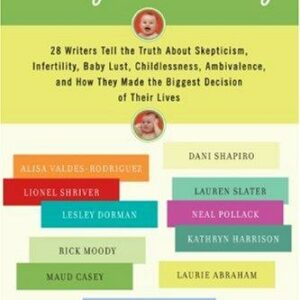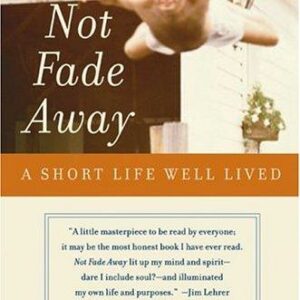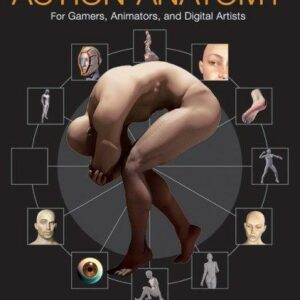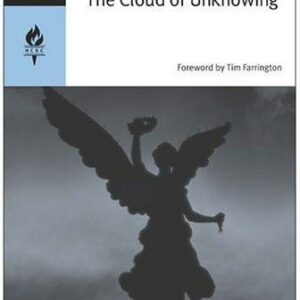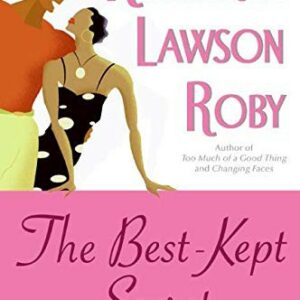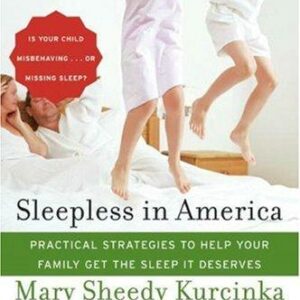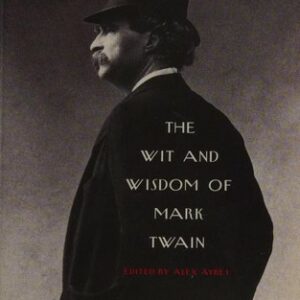After Breast Cancer
$19.00
| Title | Range | Discount |
|---|---|---|
| Trade Discount | 5 + | 25% |
- Description
- Additional information
Description
As women quickly discover, their life when treatment ends is very different from what it was before their diagnosis. Often exhausted, anxious, and emotionally volatile, they are beset by physical discomforts, fearful of intimacy, afraid for their children, worried about recurrence. Anticipating a return to “normalcy,” they discover that the old version of normal no longer applies.
There could be no more knowledgeable guide for women embarking on this complicated journey than Hester Hill Schnipper, who is herself both an experienced oncology social worker and a breast cancer survivor. This comprehensive handbook provides jargon-free information on the wide range of practical issues women face as they navigate the journey back to health, including:
•Managing physical problems such as fatigue, hot flashes, and aches and pains
•Handling relationships: your children, your partner, your parents, your friends.
•How to regain emotional and sexual intimacy
•Coping with financial and workplace issues
•Genetic testing: why, whether, when
•How to move beyond the fear of recurrence
•And much more
This indispensable book will help you rediscover your capacity for joy as you move forward into the future—as a survivor."Although countless books and pamphlets have been written for women recently diagnosed with breast cancer, little exists for women who have finished their treatment. In this volume, readers will find a guide that might help them better understand their infinitely complex circumstances and find hope. —Publishers Weekly
“If my book is the one you buy when you are diagnosed with breast cancer, this one should be the one you purchase as you finish treatment. Schnipper is a terrific guide on the rocky road to recovery. This book will help you transition from the last chemotherapy/radiation treatment and help you reclaim your life!” —Susan Love, M.D.
Hester Hill Schnipper, LICSW, brings a unique expertise to her subject: not only her many years as an oncology social worker and the creator of a highly respected support program for women with breast cancer—but also her own experience as a breast cancer survivor. A member of the Oncology Social Work Department at Beth Israel Deaconess Medical Center in Boston, she lives outside Boston with her husband, the distinguished medical oncologist Lowell E. Schnipper, MD.Chapter One
My Personal Journey
As hard as it is to remember, there was a before. I had lived for forty-four years and thought of myself as having been lucky. I had been a daughter, a sister, a wife, a mother, a lover, and a friend. I ate right, exercised, got enough sleep, and in general took good care of myself. I had been working as an oncology social worker for more than fifteen years and had recently fallen in love with a wonderful man who happened to be a medical oncologist. It usually seemed a good thing that we shared so much of our work lives and could help and understand each other. Spending our days in the midst of cancer, as we both did, we recognized and appreciated our own good health and good fortune.
I had lived through the death of my beloved father, my mother’s aging and increasing needs, the loss of too many patients and friends to cancer. I had come through a divorce and was hopeful that my daughters and I were moving forward toward better times. My older daughter was clearly thriving in college, and my younger girl was a typical twelve-year-old, wondering about boys and friendships and whether I could drive her to the mall on Friday evening.
When I try to remember who I was and how my life was before breast cancer, I think especially of my work. My hospital, Beth Israel Deaconess Medical Center in Boston, has always been a well-known and respected center for breast cancer treatment. When I began to work there in 1979, it was one of only three institutions in the country where some women with certain forms of the disease were regularly offered the choice of a wide excision (lumpectomy) and radiation therapy rather than mastectomy. Many women came from distant cities to avail themselves of this breast-conserving option. The diagnosis and treatment of breast cancer was an institutional priority and quickly became my passion.
In the years since then, I have developed a wonderful and well-respected psychosocial support program for women who have breast cancer. With the overarching goal always empowerment and community, I have met with women and their families for counseling, facilitated countless support groups for women in all stages of breast cancer, developed a model peer-support program called Patient to Patient, Heart to Heart, and offered many special programs. I have been active in many national breast cancer and professional organizations and have lectured widely. I have been on the faculty at the Harvard Medical School and the Boston University School of Social Work. Additionally, I have written numerous professional articles about psychosocial aspects of breast cancer and, following my own diagnosis, about my dual perspective and experience as patient and clinician.
Through the years, I have known and loved hundreds of women with breast cancer. I have spent thousands of hours with them and with their families as they learned to cope with their disease and its treatment. I have kept watch by too many bedsides as women died of this illness, and I have grieved later with their husbands and children. I have always had an enormous respect for the power of breast cancer and never underestimated its strength and guile.
My style with my patients had always been one of relatively few rigid boundaries and of shared human relationships, but my own diagnosis of cancer shattered any lingering walls between us and set up a new paradigm of truly working together. Whether in individual sessions in my office or in groups, we together, sharing our strength, turned to face down the tiger. We rebuilt our lives and we eventually came to appreciate the clarity that cancer brings. My own vision gradually expanded to include a life lived in parallel: therapist and patient, caregiver and care recipient. My strongest alliances shifted to stand with my patients rather than with my professional colleagues. I live a double life.
We who work for long years in oncology learn the lessons that our patients have to teach. We know that life is fragile and fleeting. We know that there is no true safety, that our insistence on healthy diets, exercise, and stress management are illusions of control. We understand that there are no real differences between our patients and us except that they have already received a diagnosis of a life-threatening illness. One of my surgeon friends tells his patients, "We are all pre-op." Unlike most people, we spend our workdays immersed in illness and death and keenly appreciate the fact that life can change or end in a moment. Denial is not an option.
There is something else. We who work long in oncology, whether we are doctors or nurses or social workers, believe at some subconscious magical level that we have struck a bargain with the gods. Of course we understand intellectually that this is not so, but in our hearts the pact has been sealed. We take on seemingly endless loads of sadness; we carry others’ hope; we give and we do and we know that one person can make a difference. We spend our days trying to heal others. This is supposed to buy us, and those whom we love, protection.
For years, in both my professional and my personal lives, I had said, "When I get breast cancer . . ." When asked by my patients if I had been through the experience, I always answered, "Not yet." I sometimes sat with my breast cancer support groups and wondered how each of the women there had first discovered her cancer and how I would someday find my own. Why did I feel that way? My mother had breast cancer in her mid-sixties, was treated and stayed well, and no one else in my family had breast or ovarian cancer. Hardly anyone in my extended family had ever had any kind of cancer at all.
No one would have considered me to be part of a high-risk family. Being the daughter of a woman who had postmenopausal breast cancer does not appreciably increase one’s risk. Why was I so certain?
During the fall of 1992 and early winter of 1993, I felt vaguely unwell. There was nothing that I could pinpoint and not even anything I could describe. There was only a certainty that something was not right. Following a number of years in a difficult marriage, a separation, and a subsequent divorce that had been very hard on me as well as on my children, I was in love. For the first time in a decade, I was truly happy and felt that my life was working out. Being superstitious enough to be concerned about bringing my good fortune to the attention of the fates, I wondered whether my diffuse malaise was a defense. Was I trying to trick the heavens into thinking I had already had my share of troubles and needed no more? Could I possibly have believed that each of us is required to contend with a set amount of pain?
Sometimes I would look in the mirror and think, Well, I am getting older. That is why I look and feel this way. But I knew that was not it.
I have a vivid memory of stepping out of the shower on a cold morning in January 1993 and stating: "There is something seriously wrong with me." My fiancé, a medical oncologist and professor at the Harvard Medical School, tried to tell me I was wrong. He suggested that most New Englanders feel that way during the depths of winter. He told me that I was probably not getting enough sleep and certainly was working too hard. I knew he was wrong.
A few weeks later I knew the reason for my sense of foreboding. Early in the morning, still half-asleep in bed, I stretched and my hand went straight to a lump in my left breast that had never been there before. I had been compulsive for years about breast self-examination, had yearly mammograms, and I knew the landscape of my naturally lumpy breasts. This was different. In that first instant of blinding recognition, my brain and my heart and my stomach reacted as one. I knew.
Since then, I have listened as many women have told me that they knew that something was wrong before their breast cancer was detected. They simply did not feel right. Many of us know our bodies well and our instincts are apt to be correct. One woman told me of being aware of an odd odor in the months preceding her diagnosis; it disappeared when her tumor was surgically removed. Another told a story of dreaming that she had found a lump. She awakened in a panic and touched the place on her breast where the dream lump had been. There was a real lump there and it was cancer.
I wonder now whether I always had heard these stories but dismissed them. Certainly many women describe exactly the opposite situation. They say, "I had never felt better in my life at the time that my breast cancer was found." We are all different, but I now have a deep and abiding respect for women’s instincts about their bodies. When someone tells me that she is sure something is wrong, I listen carefully. Often she is right.
Having spent so many years working with women who have had breast cancer, I was well educated about the issues and the impact of the disease. I knew about treatment options, side effects, statistics, and recurrence risks. I understood that breast cancer is a family disease and that everyone in the family is affected. I knew about work-life struggles, concerns about insurability, and changes in professional roles. I knew that friendships often changed, that marriages sometimes faltered, that sexuality and sense of self were always touched. I understood that fear and sadness became permanent companions. I thought I knew all about it.
The diagnosis of breast cancer brought me to my knees.
The first, the very first lesson for me was that I knew nothing about what it was really like to have breast cancer. Working with other mothers was no preparation for having to tell my own daughters of my diagnosis. Talking with other daughters was no preparation for having to tell my own mother that her worst nightmare of seeing breast cancer extend into another generation had come true. Talking with other wives was no preparation for realizing that my own beloved might someday be with another.
Mainly, there was no way to prepare for the feelings. I was overwhelmed with terror and grief and anger. I literally did not know where to put those emotions. In the first months of working as I learned to live with my own cancer, I struggled daily with the fear. How could I sit with a woman who was dying of breast cancer, a woman who had a daughter exactly the same age as my younger girl, and help her think about how best to prepare her daughter for life without a mother? How could I comfort a woman, diagnosed and treated in tandem with me, who now had widely metastatic cancer and was facing a grim and uncertain future? How could I be helpful to anyone when my own heart was pounding and my own soul was trembling?
I raged and I wept and I recognized that I had to find a way or I could not continue. I began to look at my patients and realized that I was surrounded by lessons in how to live with fear and sadness. Each day I was amid ordinary people who were doing extraordinary things; I had only to watch them and to learn. Gradually the raw intensity subsided and a way emerged to continue with life through treatment.
As the months passed and the end of chemotherapy finally arrived, I learned the second important lesson. In retrospect, the crisis of diagnosis and the difficult months of physical treatment are almost the easy part. The real challenge comes with living with breast cancer. It is clear that the goal must be to live as though the cancer will never return. Living any other way, mired in anxiety and sadness, means that the cancer wins, whether it recurs or not.
Learning how to live "as if" is the reason for this book. It is, of course, a labor of love. I am blessed to spend my days with women who are learning with me how to live, and live well, in spite of the cloud of breast cancer. As increasing numbers of women survive and live many years after treatment, the focus of attention shifts. Everything about a woman’s life is changed by the experience, and the physical and psychological difficulties can be demanding. The issues of survivorship must be appreciated for what they are: the fruits of pain and the rewards of living.
Chapter Two
Finishing Treatment:
The Very First Weeks
At this point you are physically exhausted and emotionally spent. You may be bald, burned, and weigh either fifteen pounds more or ten pounds less than you did at the start. When you look in the mirror, you don’t look like yourself. You most certainly do not feel like yourself. You have used all of your strength and resilience to get this far yet are now facing a long and uncertain road back to health. It is a strange disease indeed that leaves you feeling far worse at the completion of treatment than you did at the time of diagnosis!
Completing active treatment for breast cancer is often an otherworldly experience. All of a sudden, you are congratulated and abruptly thrust back into the land of the well. You, of course, are not feeling well and understand that you will remain "chemically altered" for some weeks. Even if this day, your final treatment, has been circled in red on your calendar for months, you probably approach it with some uncertainty. You may be surprised that you do not feel like celebrating. You may find that you approach the final chemotherapy infusion or radiation treatment with trepidation or even sadness. Although the months of treatment may have passed very slowly and although you may have been dreaming of this moment for a long time, you are probably not truly prepared to leave behind everything about being a patient. It is an important moment, a day to remember and to ponder, but it is not a festive occasion. During the months of treatment, many women expect to feel jubilant upon finishing. They sometimes imagine bringing a cake into the radiation department on the final day or going out to dinner with friends that night. It is certainly possible that you will feel this way, but do not be surprised if, instead of relief, you feel scared and even let down.US
Additional information
| Weight | 9.9408 oz |
|---|---|
| Dimensions | 0.7000 × 5.2100 × 8.1300 in |
| Imprint | |
| Format | |
| ISBN-13 | |
| ISBN-10 | |
| Author | |
| Audience | |
| BISAC | |
| Subjects | self development books, self help books for women, HEA009000, health books, fitness books, health and wellness, womens health, health and fitness, medical books, HEA039030, self improvement books, motivational books for men, personal growth books, inspirational books for women, breast cancer survivor, breast cancer, breast cancer gifts, women, gifts for her, motivational books for women, motivational books, gifts for women, self help books, fitness, cancer, gifts for mom, aging, motivation, happiness, health, self help, wellness, healing |


